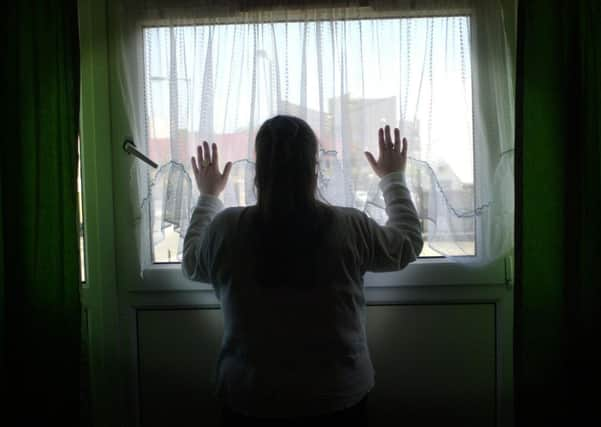Domestic abuse victims to get GPS exclusion zones


Abusers will also be tracked to ensure they do not re-offend or get too close to victims. The plans are included in a Police Scotland response to a Scottish Government consultation on electronic monitoring.
The consultation, launched in September 2013, proposes using GPS tags to track domestic abusers and alcohol bracelets for people who commit crimes while drunk. While many sex offenders are already tagged, the move would see a major increase in how much movement is monitored.
Advertisement
Hide AdAdvertisement
Hide AdCurrently, radio frequency tags go off if someone leaves a certain area or goes somewhere they should not within set times.
Using satellite technology, under the plans police will be able to monitor an offender at all times, wherever they go and will be able to observe patterns of movement. Victims will also have the option of GPS tagging.
The consultation is ongoing and Police Scotland has not published its response. However, the force has made it clear it is supportive of GPS monitoring.
Assistant chief constable Malcolm Graham said: “Police Scotland is broadly supportive of exploring the appropriate use of new technology, including GPS, to help us keep people safe. It is important to stress that the use of technology would support processes already in place to manage offenders.”
Police Scotland has made domestic abuse a priority since it was formed last year. A taskforce was created, bringing together 25 officers with specialist knowledge and best practice from across the country.
Community centres, housing associations and Citizens Advice bureaux have been enlisted as remote reporting stations, where victims can talk about crimes if they are not yet ready to speak to police.
Officers who attend incidents have also been ordered to work under a “positive arrest policy”, by which they investigate rigorously and look for evidence even if the victim does not want to make a complaint.
A spokeswoman for Scottish Women’s Aid said: “We welcome discussion of ways to keep people safe, and are not against the application of new technologies. However, electronic monitoring must not be an alternative to remanding dangerous perpetrators. A risk assessment process and consultation with victims prior to making a decision on bail is essential. Neither should it be used as a cost-saving exercise to reduce the number of remand prisoners.”
The Scottish Government, which has a contract with G4S to deliver electronic monitoring, has yet to unveil its own response.